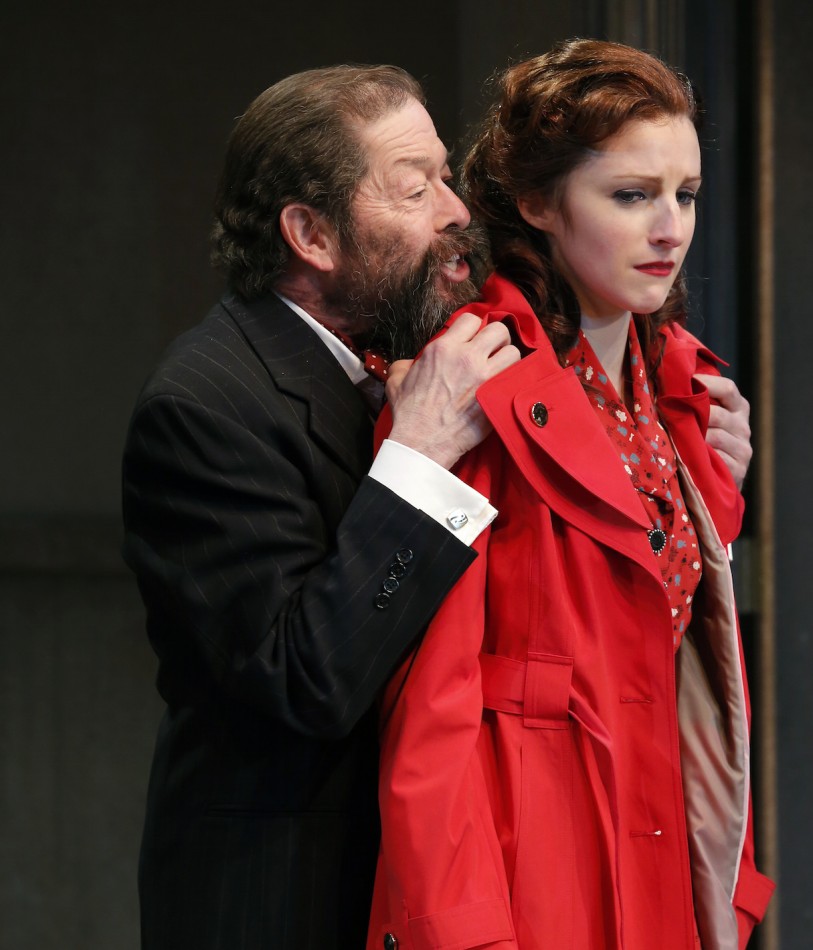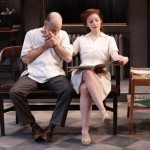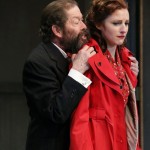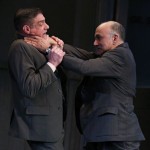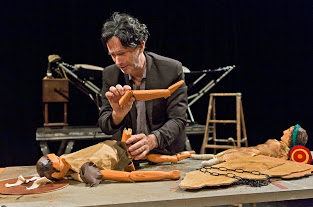by Susan Hasho
Just when you thought you knew Clifford Odets, you get a rare opportunity to see Rocket to the Moon, revived in New York by the Peccadillo Theater Company directed by Dan Wackerman.
In Rocket to the Moon, Odets has written a very intimate play about marriage, it would seem. One man stuck in a situation he experiences as a cage, in a relationship that functions as a hot, stifling, conflict-ridden boulder in the way of his freedom. Odets has incorporated all he understood about ambition, socio-economic upheaval and artistic freedom and all he hated about selling himself out in Hollywood into a play. There is a constant undertow of rage underneath all the stunted emotional life in this play that creates a fascinating sense of danger.
The play takes place during a sweltering summer in a dentist’s office in New York City circa 1935. Ben Stark, D.D.S (Ned Eisenberg) is clearly dogged at every turn by his wife Belle (Marilyn Matarrese). He hires a new secretary Cleo Singer (Katie McClennan) to manage his office. She seems at once brutally honest and a dreamer. Clear-eyed and lonely, she makes herself indispensable to Dr. Stark, his father-in-law Mr. Prince (Jonathan Hadary) and also target for the wolfish choreographer, Willy Wax (Lou Liberatore). All hands on deck—including a money-strapped office mate Phil Cooper (Larry Bull) and neighbor Frenchy (Michael Keyloun)—never leaving the dentist’s office, this play speeds from marital strife to hot office love affair and bumps squarely into a very surprising detour. Mr. Price has fallen in love with the lovely fresh young thing and decides to take her away from his son-in-law. And at the same time, Dr. Stark is desperate to get her out of the clutches of the oily Mr. Wax even if he has to resort to violence. Cleo will play all these men against each other, in her plan to end up with Ben.
As the story unfolds and we understand more of who these people are, what comes to light is Ben’s true dilemma. Ben isn’t the victim of his marriage; he’s married to his limitations; he’s committed to being small—anything else is way out of his self-created comfort zone. What he finds at the end of this play however, is a small opening. The play ends with this: “For years I sat here, taking things for granted, my wife, everything. Then just for an hour my life was in a spotlight. I saw myself clearly, realized who and what I was. Isn’t that a beginning? Isn’t it? And this is strange! For the first time in years I don’t feel guilty. But I’ll never take things for granted again…I, who sat here in this prison-office, closed off from the world. For the first time in years, I looked out on the world and saw things as they really are…Sonofagun! What I don’t know would fill a book!”
Odets is very savvy about subtext; and this play provides moments of shockingly honest dialog, and constant conflict and emotional outbursts that have to be riding on a larger context. If emotion is performed at obvious moments, in an effort to fulfill the demands of the play, the actors then seem to be playing on point, on cue. These actors are talented. This play is certainly not perfect. This production didn’t reach its full potential. Time wasn’t taken for moments of orientation, character with character. Important connections seemed to be missing. As a result the production skimmed the surface too often, to the detriment of its full effect. The construction of this play presents a difficult puzzle: how to start at a high point and find depth and subtlety within extreme tension for two hours. I think it’s worth solving.
*Photos: Carol Rosegg
Theatre at St Clement’s 423 West 46th Street, New York, NY 10036
Box Office: 212.352.3101 www.thepeccadillo.com


